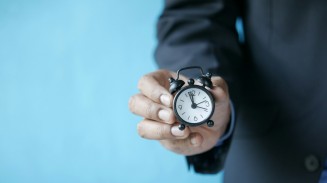The BBC is currently facing disagreement with the government over its shows scheduling. Reports show that the government is seeking to ban the network from airing its most popular TV shows at peak times.
The policy was reportedly designed to prevent clashes with other channels. The concept was initiated by the culture secretary John Whittingdale who is considering ideas to prevent what he called "competitive scheduling". According to The Guardian, Whittingdale is expected to publish a white paper on BBC Charter renewal, which will most likely also regulate the matter.
Reports suggested that the government will include the new policy of banning popular shows from airing at peak times as a part of the funding agreement with the BBC. The deal will cover the terms and regulations that must be followed to extend the government's funding for the BCC for the next 11 years.
The BBC has responded, calling the rumored plans "unacceptable interference". A source for the BBC said that it would be odd to make it harder for people to watch programs they had paid for. If the ban is indeed applied, BBC can no longer air its popular shows such as Strictly Come Dancing, Doctor Who and Sherlock on prime time weekend slots.
"This kind of meddling in day-to-day scheduling decisions would be a completely unacceptable interference in the independence of the BBC," said BBC's Maria Eagle. "The public will wonder why the government is interfering with the BBC, and why they are trying to dictate when they can schedule hugely popular programs like Strictly Come Dancing," she added.
The government, on the other hand, has not officially announced the plan. Previously, the government also stated that it intended to determine program scheduling for the BBC. However, some Sunday newspapers have reports that suggested the BBC will indeed be called upon on its scheduling and how rivals are impacted by the schedule.
Rival channels such as ITV has raised complaints about the license fee being used to compete with the BBC, as reported by The Drum. Unlike the BBC, which is funded by the government, other channels depend on advertising revenue to maintain its business.
Reports suggested that the government is seeking to ban the BBC from airing popular shows on prime time, to avoid competitive scheduling with rival channels. The government is yet to announce the policy, but details are expected to be revealed along with the BBC Charter renewal, which will regulate the terms of government funding for the channel for the next 11 years.
© 2023 Lawyer Herald All rights reserved. Do not reproduce without permission.
Get the Most Popular Lawyerherald Stories in a Weekly Newsletter





